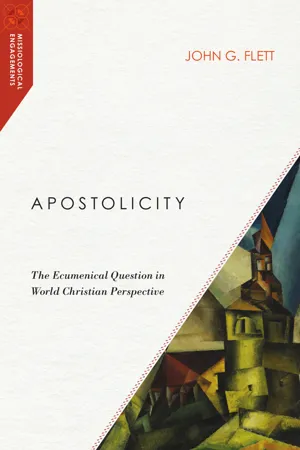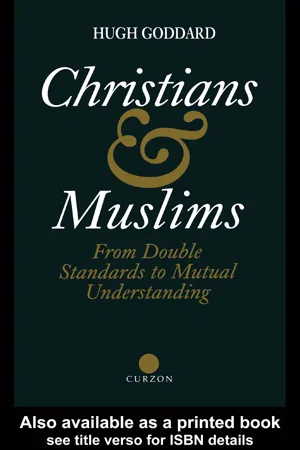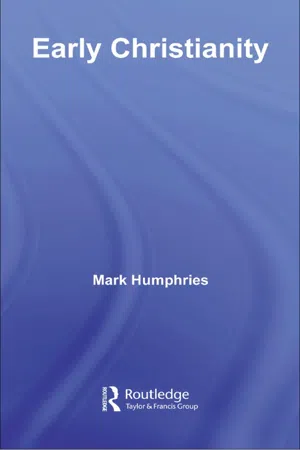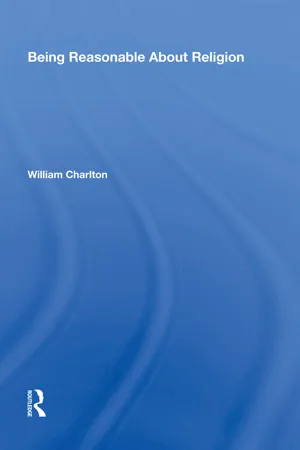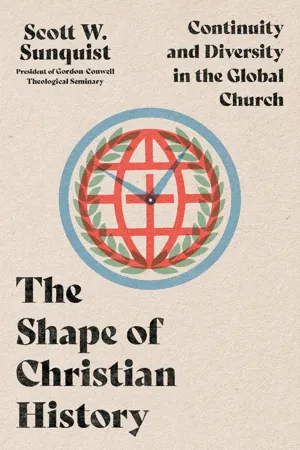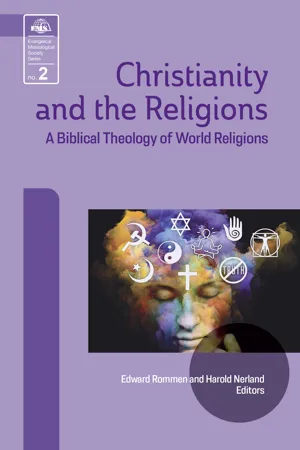History
The Spread of Christianity
The spread of Christianity refers to the expansion of the Christian religion from its origins in the Middle East to become a global faith. This process involved missionary activities, the conversion of rulers and populations, and the establishment of churches and religious institutions. The spread of Christianity had significant cultural, social, and political impacts, shaping the history of many regions around the world.
Written by Perlego with AI-assistance
Related key terms
Related key terms
1 of 4
Related key terms
1 of 3
10 Key excerpts on "The Spread of Christianity"
- eBook - ePub
Advanced Missiology
How to Study Missions in Credible and Useful Ways
- Kenneth Nehrbass(Author)
- 2021(Publication Date)
- Cascade Books(Publisher)
178 theorized that the expansion was possible because early Christian society offered more tangible benefits than the Greco-Roman world did.On the other hand, historians have had to explain why Christians since the first century experienced persecutions and martyrdom. “Their enemies patently trifled with the truth when they referred to the Christians as ‘imbeciles’ (Lucian), ‘god-forsaken fools’ (Celsus), and haters of the human race’ (Tacitus) . . . The Christians were generally despised, often hated, by the people among whom they lived. They were accused of being atheists, immoral and unpatriotic.”179The Spread of Christianity beyond the Near East was also a chief question for Moore.180 More recently the question of how Christianity became a world religion was taken up by Robert.181 And Montgomery has specifically applied Diffusion Theory from the social sciences to understand the “lopsided” expansion of Christianity throughout history.182Other histories of missions focus on how the gospel spread in a specific region. Examples include Robinson’s study of the Christianization of Europe,183 or Addison’s research on the conversion of Northern Europe during the Middle Ages.184 The earliest and most prevalent explanation for The Spread of Christianity has been the sovereign will of God.Following “Providential Guidance” Throughout HistoryBefore the Enlightenment, church history was aimed at showing the continuity and sovereignty of God over time. “History (or at least chronicle) was written not critically, but inspirationally; and in a cosmos perceived as a battleground between God and the Enemy, only one side of the story was worth the telling.”185 - eBook - ePub
Apostolicity
The Ecumenical Question in World Christian Perspective
- John G. Flett(Author)
- 2016(Publication Date)
- IVP Academic(Publisher)
It establishes an early interpretive framework that finds confirmation through the same process occurring in Christian history and today in the ferment of world Christianity. One key difference is that while the early church focused on the relationship of two cultures, ongoing “Christian cross-cultural diffusion has brought many more into the church, and our own day has seen the greatest proliferation of all.” 71 This only strengthens the point: what one sees in world Christianity is the very logic of Christian history. 72 This opens the scope of Christian history, first, by finding that dynamic even in the perceived lineal course of the Western church, and second, through the detachment of Christian history from a singular passage coincidental with the European landmass by pointing to a wider range of historical continuities. The general hope, for Sanneh, is for a Christian history developed without a “preoccupation with the European heartland and its structures of power,” and with a mind “to the frontier, scarce in institutional assets but with a teeming diversity that attests to the religion’s genius for fostering a spirit of unity along with a variety of styles and idioms.” 73 Whatever the critical element, it is in service to this positive vision of world Christianity. The first stage in the argument challenges the dominant view of church history and its tracing a line from Jerusalem to the Mediterranean, to a consolidation in Rome, to the northern tribes, to western Europe, followed by the new colonies in America, and finally to Asia, Africa and Latin America. Included here is a normative evaluation of the Hellenization of the gospel: this initial episode of translation establishes a cultural form, and this form parallels the course of Western cultural history - eBook - ePub
Christians and Muslims
From Double Standards to Mutual Understanding
- Hugh Goddard(Author)
- 2003(Publication Date)
- Routledge(Publisher)
Since the end of the Second World War most parts of the globe which had previously been under European control achieved their political independence, and the heyday of European imperialism thus came to an end. This did not mean, however, that the spread of the Christian church, allied as it had sometimes been with European political influence and control, came to an end. Rather, in many parts of the world at least, that process has accelerated as the Christian church became indigenised and identified itself more fully with local culture and life.The Christian church in this period has thus witnessed spectacular growth in Africa, and also in some parts of Asia. In the latter, for example, there has for some centuries been one nation in which the majority of the population is Christian, namely the Philippines, whose name derives from that of the Spanish king Philip II, but now there is a second nation in which it seems that Christians may shortly make up the majority of the population, namely South Korea. This development may be explained in part by the particular political circumstances arising from the legacy of the Korean War and the Cold War era, but it is one clear piece of evidence for the assertion that the dismantling of European empires has not resulted in the end of the process of Christian expansion. In addition the emergence of flourishing local traditions of Christian thought testify to the vitality of Christian communities in different continents.14On the other hand, in the part of the world from which the modern expansion of the faith began, namely Western Europe, the Christian church is today witnessing a considerable decline in its influence and power. This is largely as a result of the process of secularisation which can be traced back to the Enlightenment, and certainly in terms of attendance at public worship the various churches of Western Europe have seen a spectacular decline in numbers. On the other hand, in the part of the world which since 1945/1365 has been seen as the leading power of “the West”, namely the United States, church attendance continues to flourish, to a far greater extent indeed than in the nineteenth/ thirteenth century, and the corrosive effects of secularisation are therefore less obvious and more subtle. - Timothy Yates(Author)
- 2019(Publication Date)
- Lion Scholar(Publisher)
PART 1THE EXPANSION OF CHRISTIANITYPassage contains an image INTRODUCTION
This account attempts to describe how Christianity expanded across the world. It does not claim to be a complete history of the church from AD 1 to AD 2000. It concentrates on pioneers, Peter and Paul in the 1st century, Columba and Aidan in the Celtic period, and on great missionary figures such as Willibrord and Boniface, Francis Xavier and Robert de Nobili, John Eliot and David Brainerd, William Carey, Robert Moffatt and David Livingstone, Mary Slessor and Florence Young to name a selection. The approach taken is geographical, chapters after the first dealing with continents; and chronological, so that some sense of development in each area of the world is presented in a time sequence.One of the many deficiencies of such a treatment is that, with the concentration on expansion, those considerable reverses experienced by the Christian world, most particularly from Islam in the 7th and 8th centuries, have received little coverage. Something that should not be forgotten is that Christian expansion has not been a continual success story. The great historian of Christian expansion, Kenneth Latourette, put forward the so-called wave theory, by which, despite retreat in periods of its history, to his eye each wave of Christianity reached further than the last.Certainly in the 20th century Christianity became worldwide in the sense that churches were planted in every major ethnic group in the world, leading one archbishop of Canterbury, William Temple, in the 1940s to call this ‘the great new fact of our time’. According to the figures in the World Christian Encyclopedia- eBook - ePub
- Mark Humphries(Author)
- 2006(Publication Date)
- Routledge(Publisher)
chapter 6 ). How did Christianity develop from a few beleagured disciples in Judaea to a worldwide movement in such a relatively short space of time?This is a difficult question to answer because of the shortcomings of the sources. We have already seen that the many medieval accounts of early missionaries founding churches in different parts of Europe are too tendentious to be taken seriously (p. 46). Our most important ancient narrative, Eusebius’ Ecclesiastical History, is rather less helpful on this topic than might be expected from a work that was devoted to recounting the triumph of Christianity in the Roman world. His own statements on the dissemination of Christianity are limited to accounts of apostles taking the gospel with them to different parts of the world, and his sources for this are either the New Testament itself (particularly the Acts of the Apostles) or a rather nebulous ‘tradition’ (paradosis: Ecclesiastical History 3.1.1). He tells the story, now universally regarded as pure invention, of the early conversion of king Abgar of Edessa in northern Mesopotamia, and his exchange of letters with Jesus himself (Ecclesiastical History 1.13). That Eusebius tells us so little is hardly surprising. For him, paganism was a disease, and Christianity was its cure: Christian success was inevitable and was guaranteed ‘by the power and help of heaven’ (Ecclesiastical History 2.3.1). No further explanation was necessary.For modern historians, who are prone to ask why a small religious sect could come to be the religion of the Roman empire, further explanation is necessary. Even so, answers are scarce. Like Eusebius, other early Christian writers were convinced that the success of their religion was guided by God. Moreover, they often made statements about the progress of Christianity, but the historical reliability of such remarks is doubtful given that they appeared in polemical or apologetical works. Thus Irenaeus of Lyons spoke around 180 of Christians in Germany, Spain, Gaul, the East, Libya, and Egypt (Against Heresies 1.10.2) – but he did so in order to make a point about the worldwide unity of the church against heretics who were trying to divide it. Not much later, the north African writer Tertullian provided a comprehensive list of peoples and regions in the (then) known world and remarked: ‘The name of Christ is disseminated everywhere, believed everywhere, revered by all the peoples listed above, it reigns everywhere, and is everywhere adored’ (Against the Jews 7.9). Tertullian’s testimony is no more reliable than that of Irenaeus. It comes in a polemic in which Tertullian argued for the superiority of Christianity over Judaism and claimed for the Christians and not the Jews biblical proclamations such as that in Psalm - eBook - ePub
The State of Missiology Today
Global Innovations in Christian Witness
- Charles E. Van Engen, Charles E. Van Engen(Authors)
- 2016(Publication Date)
- IVP Academic(Publisher)
Atlas of Global Christianity was published. The use of the phrase “global Christianity” in the title was intended to emphasize that Christianity has become a global phenomenon. We do not hesitate in acknowledging that world Christianity was the fruit of the modern missionary movement of Western churches. Western churches and missionaries have done a marvelous job in bringing the gospel to the nations. Their labors and sacrifices were the very foundation of the churches in the non-Western world.F. F. Bruce used the title of The Spreading Flame (1980) to describe the rise and progress of early Christianity, highlighting the fact that the expansion of the early churches was rapid and successful.1 The modern missionary movement during the last two centuries was a similarly spectacular phenomenon in bringing the gospel to the whole world, like a spreading flame.We find another similarity between the early Christian expansion and the modern Western missionary movement in that both progressed side by side with colonial expansion. While the early missionary outreach was expedited by via Romana, the modern Western missionary movement cashed in on the colonial expansion of European imperialism. Wittingly and unwittingly, the expansion of Christianity during the colonial period was done hand in hand with the Western colonial conquest. As a result, Christian mission has been intertwined with the image of Western colonial dominance. Ironically, the historical association of Western Christian mission with Western colonialism eventually served as one of the causes for the retreat of Western mission.A Changed Reality: The End of the Colonial Era
While Western colonialism served as one of the most significant contributing factors for the global expansion of Christianity, the end of Western colonialism also exerted an enormous impact in modern Christian history. The end of Western colonialism symbolized the sunset (using Donald McGavran’s metaphor) of Western missions, and we are expecting that a new sun will rise for global mission sooner rather than later. In this postcolonial era, we have come to realize that the business-as-usual attitude does not work any longer and that we must deal with the colonial legacy of Christian missions, including the pattern of colonial mission, the image of Christianity and the colonial understanding of the nature of Christian mission. - eBook - ePub
- William Charlton(Author)
- 2017(Publication Date)
- Routledge(Publisher)
Chapter 6 The Spread of ChristianityEarly in Luke’s Gospel there is an attempt to fix the time at which John the Baptist started baptizing. We are told that it was in the fifteenth year of the reign of Tiberius; that would be about 28 AD. At that time Jesus of Nazareth had not started his mission, so there could have been no Christians: no one believed or had even heard of the central doctrines of Christianity. Perhaps three years later Jesus was executed, and his surviving followers were few in number, fearing for their lives, and convinced that his mission had been a failure. They thought he was dead and gone, and his teaching had died with him. Three hundred years later Christianity became the official religion of the Roman Empire, and in the centuries that followed it became the sole religion of the Mediterranean world. The Olympian gods lost all their followers, and so did any other gods there may have been on the fringes of the Roman Empire. In the seventh century the followers of Mohammed took over the eastern and southern shores of the Mediterranean, but they worshipped the same God as the Christians and the Jews. How Christianity spread is a question that has engaged many historians, and many books have been written and will be written in the future to answer it. In the present chapter I shall first survey some answers historians propose, and then consider one or two questions they omit to ask or fail to answer.Evans-Pritchard says of anthropologists:It was not just that they asked, as Bergson put it, how it is that ‘beliefs and practices which are anything but reasonable could have been, and still are, accepted by reasonable beings’. It was rather that implicit in their thinking were the optimistic convictions of the eighteenth century rationalist philosophers that people are stupid and bad only because they have bad institutions, and they have bad institutions only because they are ignorant and superstitious, and they are ignorant and superstitious because they have been exploited in the name of religion by cunning and avaricious priests and the unscrupulous classes which have supported them.1 - eBook - ePub
The Shape of Christian History
Continuity and Diversity in the Global Church
- Scott W. Sunquist(Author)
- 2022(Publication Date)
- IVP Academic(Publisher)
The great historian Kenneth Scott Latourette reflected a similar view a half a century later, although he was more chastened by the long historical record he traced. Still, he saw each advance of Christianity as progressing a little further and each recession receding a little less. In his remarkable preface to volume one of A History of Christianity, Latourette clearly outlines eight periods of church history, and he does so looking at the advance and recession of the religion and its overall influence on the world’s cultures. His last period was not yet complete (1914–1953), but he gives characteristics. He said that even with the “colossal setbacks and striking losses,” Christianity was “becoming really worldwide . .. and it is more potent than in any earlier era.” He was either an eternal optimist, or he was very prophetic, for the great Christian movement into Africa and Asia was only beginning when he penned those words. He knew of dying Christendom (“what was once termed Christendom”) in Europe in the shadow of the two world wars and the rise of atheistic communism, and yet he pronounced the body healthy. 7 He never predicted, nor did any other historian, the rapid decline of Western Christianity that was a reverse image of the non-Western world. Optimism, progressivism, and human ability were themes in the historical writing of Christianity of the period. It was easy for them to see the kingdom of God revealed in modern technology, Christian empires, the missionary movement, new schools, and modern-looking hospitals in poor countries. All of these historians were telling a story of Christianity as it was unfolding around them in ways that made sense to them and to their cultures. This should make us very cautious, careful, and circumspect in our task here. The cultural norms and values can enhance one’s historic vision, but they can also obscure both how the story is told and how we understand Christianity - eBook - ePub
- David B. Perrin(Author)
- 2007(Publication Date)
- Routledge(Publisher)
For example, the expulsion in 1492 of the Muslims from Spain, where they had enjoyed religious freedom for 700 years, cannot be understood as a strictly religious event meant to ensure the triumph of Christianity. It was also a political event. It was King Ferdinand of Castille and Queen Isabella of Aragon who united their territories in Spain and required religious conformity by all, which led to the expulsion of the Muslims. But religious conformity was not merely to enrich the lives of the Christian faithful, but also to ensure the political stability the king and queen needed to extend their political power and interests even further. The decision to expel the Muslims had an enormous influence on the history of Christian spirituality, but it was primarily a political decision. Up until this time, Christians and Muslims had lived in relative harmony. Now they were enemies.The historian’s task is to connect the dots to describe and interpret past events accurately. This task can be done only when the larger context is included. Often, an investigation beyond the initial area of inquiry will be required; the historian’s job is never complete. Since history is a cumulative discipline, there is always more evidence to add to the reflection as it becomes available. This new evidence may be drawn from new critical research within the area of Christian spirituality, or from other fields of inquiry, such as the sociological or political. What we see, then, is that historical understanding refers not only to an understanding of the events in themselves (their value, meaning, and purpose), but also to their interconnections and interdependence in the wider societal context.33In this section we have outlined the nature of historical inquiry. We can summarize some of the main ideas under the following points: - eBook - ePub
Christianity and the Religions
A Biblical Theology of World Religions
- Edward Rommen, Harold Netland, Edward Rommen, Harold Netland(Authors)
- 1995(Publication Date)
- William Carey Library(Publisher)
PART II HISTORICAL AND DOCTRINAL PERSPECTIVES
8 CHRISTIANITY AND THE RELIGIONS IN THE HISTORY OF THE CHURCH
James F. Lewis
The title “Christianity and the religions in the history of the church” suggests an ambitious task. An encyclopedic work might succeed in describing how Christianity as a whole has related to and interacted with other religions as whole entities. But this is clearly impossible in such a short scope. In fact, even in more extensive works such topics as “Christianity and Hinduism” or “Christianity and Islam” would require a daunting grasp of the diversity that is Christianity in its interaction with the diversity of these religious entities. In any case I believe the best I can do is to offer a brief account of how certain individuals have thought about and interacted with religious others and the consequences of those developments.The history of Christian-religious other interaction is more than the history of how thinkers, churches and communities have viewed the discrete religions. It is also a history of how Christians have come to understand religion as a human phenomenon. As we shall see in the last section of the paper, Christianity helped to stimulate the modern academic study of religion experiencing both positive and negative outcomes in its understanding of its relationship with the religions.The individuals I have selected to carry the narrative have been chosen either for the significance of what they did and/or thought or for what I think they symbolized. Accordingly, I have chosen the apostle Paul for his role in leading the Jesus movement out of Judaism to gain an identity of its own. Tertullian was one of several outstanding apologists who sought to offer early formal responses to pagan folk religion and the classical intellectual tradition in which Greco-Roman life was rooted.
Index pages curate the most relevant extracts from our library of academic textbooks. They’ve been created using an in-house natural language model (NLM), each adding context and meaning to key research topics.
Explore more topic indexes
Explore more topic indexes
1 of 6
Explore more topic indexes
1 of 4

